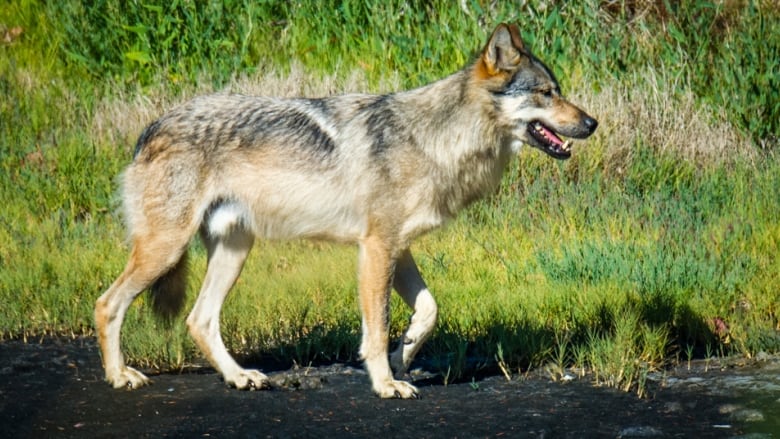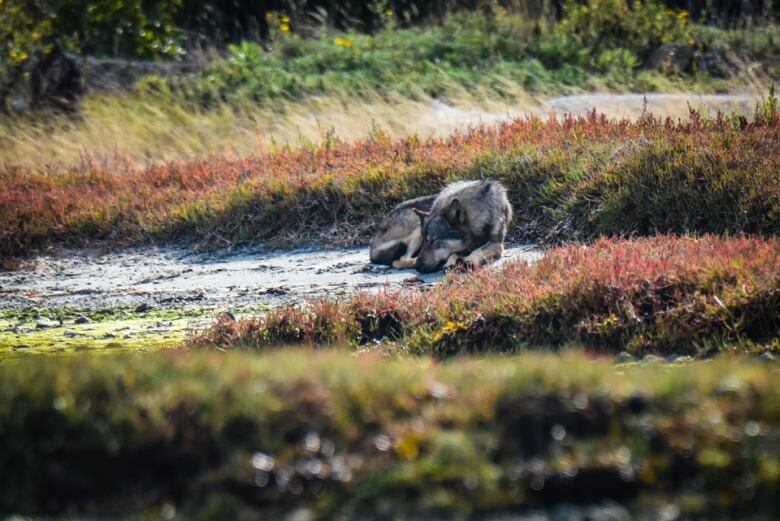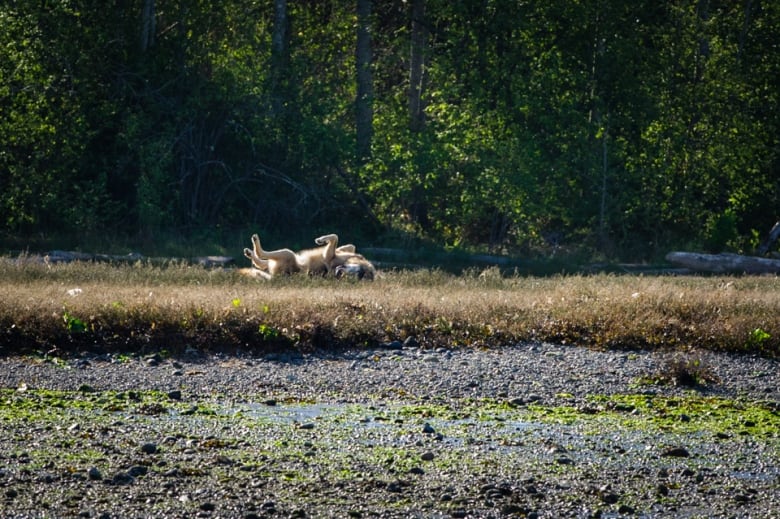Encounter with Discovery Island's lone wolf sees island closed to tourists
Island park near Victoria closed after campers report being cornered by animal

A small island off Victoria has been closed to the public after a group of campers had a frightening encounter with a lone wolf.
BC Parks announced that Discovery Island Marine Provincial Park is off limits until spring 2017 to allow "behavioural assessments on the animal to determine if there are any public safety concerns."
But a former environmental consultant who has been studying the island's resident predator for several years says it is people who pose a threat to the wolf, not the reverse.

"I've been very near this wolf many times and felt no fear," Cheryl Alexander told CBC Radio's On the Island host Gregor Craigie. They went to Discovery Island to see the wolf just before the park closure was announced.
"He has shown no aggression in any of the observations I have had with him."
On Sept. 10, a family camping with a dog contacted the Joint Rescue Coordination Centre in Victoria and said they were cornered by the animal.
- Limits on wolf hunting removed in large areas of Thompson region
- Wolf warning issued for Pacific Rim Park near Tofino, B.C. after close calls with campers
- Wolves on B.C.'s islands, mainland genetically different
The rescue centre dispatched a Coast Guard vessel and armed fisheries conservation officers escorted the campers back to their own boat.
Dogs and other pets are not permitted on the island, Alexander said, "because they imperil the wolf."

She said the wolf is very interested in domestic dogs because they are members of the same biological family, canids. The wolf could see the dog as a potential mate, an interloper on its territory, or might just be curious.
"I haven't seen him be aggressive to dogs," Alexander said. "I've seen him curious about dogs and I've seen him watch dogs."
The lone wolf was first seen on Discovery Island in 2012. The island park was closed to the public for a time that year while conservation officers tried to trap it.

Alexander became fascinated with the animal after an encounter with another group of wolves on a trip to Desolation Sound.
"I wanted to understand how this wolf is living out here, why he's here, where he came from," Alexander said. "I started coming out and trying to understand his world."
Wolves usually eat deer and other ungulates, but there are no deer on the tiny island, three kilometres to the east of Oak Bay. "He's had to choose a diet that suits where he is, and that's seals."
He also eats river otter, wild mink and goose eggs.
"I would say he's very healthy," she said. "His coat looks excellent, probably from all the seal oil."

Around the wolf, Alexander feels what he says is the opposite of fear.
"Peace, elation, marvel that this creature who is magnificent is able to eke out an existence in an environment where, if one of us was put out here by ourselves, we would struggle."
She is working on a book to share what she has learned from the wolf. She sees the presence of this wild animal in his own domain but so close to the city as "magical."
"I hope people can learn more about how to coexist with carnivores, so we don't turn around and shoot them every time we make mistakes," Alexander said.
With files from On the Island.

To hear the interview, click on the link labelled: Defending Discovery Island's lone wolf